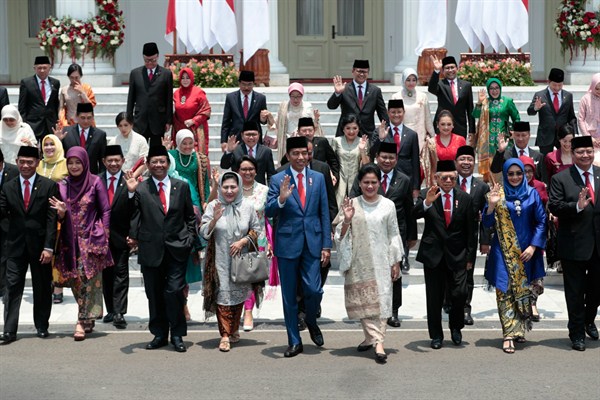Two months into his second term, Indonesian President Joko Widodo, widely known as Jokowi, has announced some bold new economic plans. He has vowed to push through major legislation on deregulation—modeled on the Trump administration’s agenda in Washington—and launch a staggering number of new infrastructure projects. It is all part of a push to attract foreign investment, which has provoked backlashes in Indonesia before, but which he said “no one should be allergic to” in a speech after winning reelection.
Whether Jokowi can implement this economic agenda remains unclear. He has built a vast, 50-member Cabinet, including vice ministers, from 10 political parties—an uneasy collection of veteran politicians, including some with unsavory backgrounds, and younger, reform-minded technocrats. This combustible mix, with many Cabinet members close to powerful tycoons more interested in their own interests than in seeing real reform, could undermine his economic plans. Jokowi’s own disinterest in parallel political reforms could prove to be a hurdle as well, hindering his abilities to get anything done if democratic backsliding undercuts his popularity.
While Jokowi initially positioned himself as both an economic and political reformer when he ran for president in 2014, he has shown his true colors in office. Mostly ignoring political reforms like tackling corruption, he has instead focused on the Indonesian economy. In his first term, he intensely courted foreign investment in the country’s crumbling infrastructure, mainly from Chinese and Japanese companies, despite sensitives over China’s influence in Indonesia. Jokowi trimmed energy subsidies and other market distortions and boosted state spending on social programs, including health care and his immensely popular, government-funded “smart cards,” which help people pay for school and health care.

